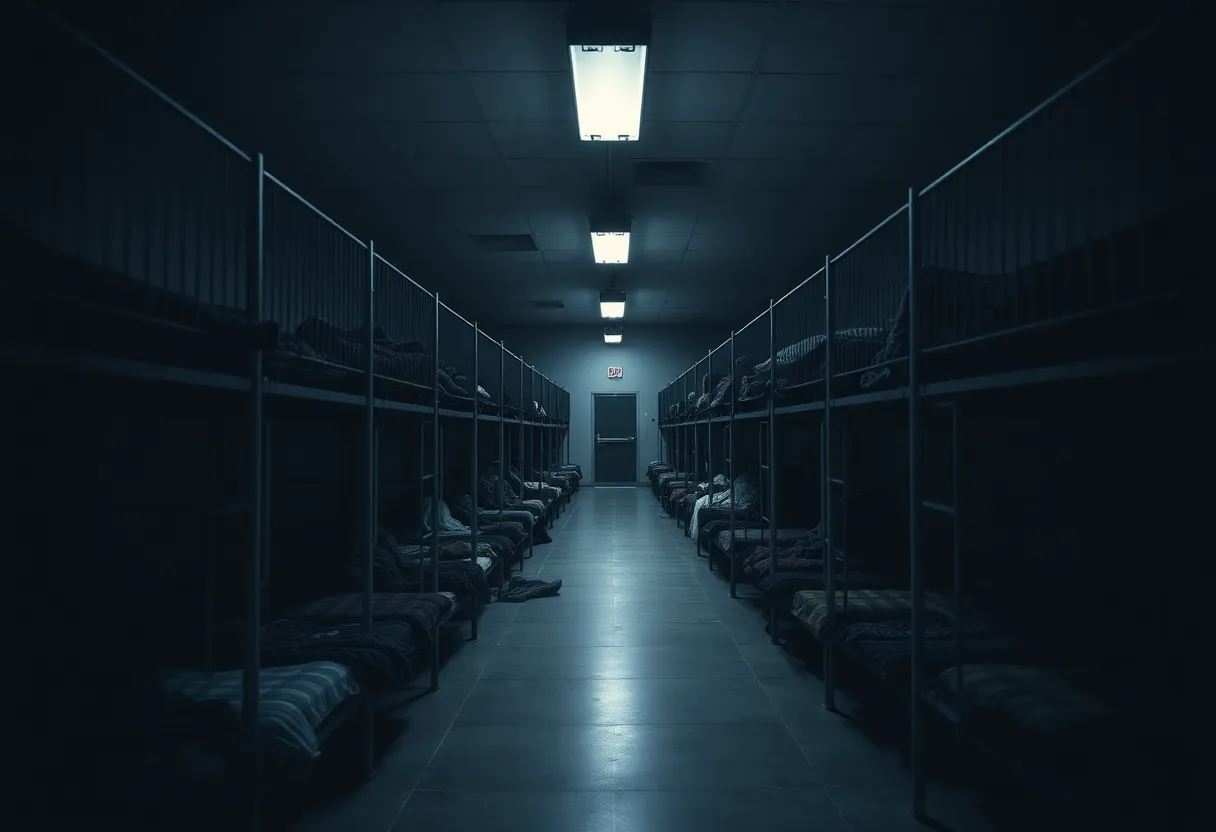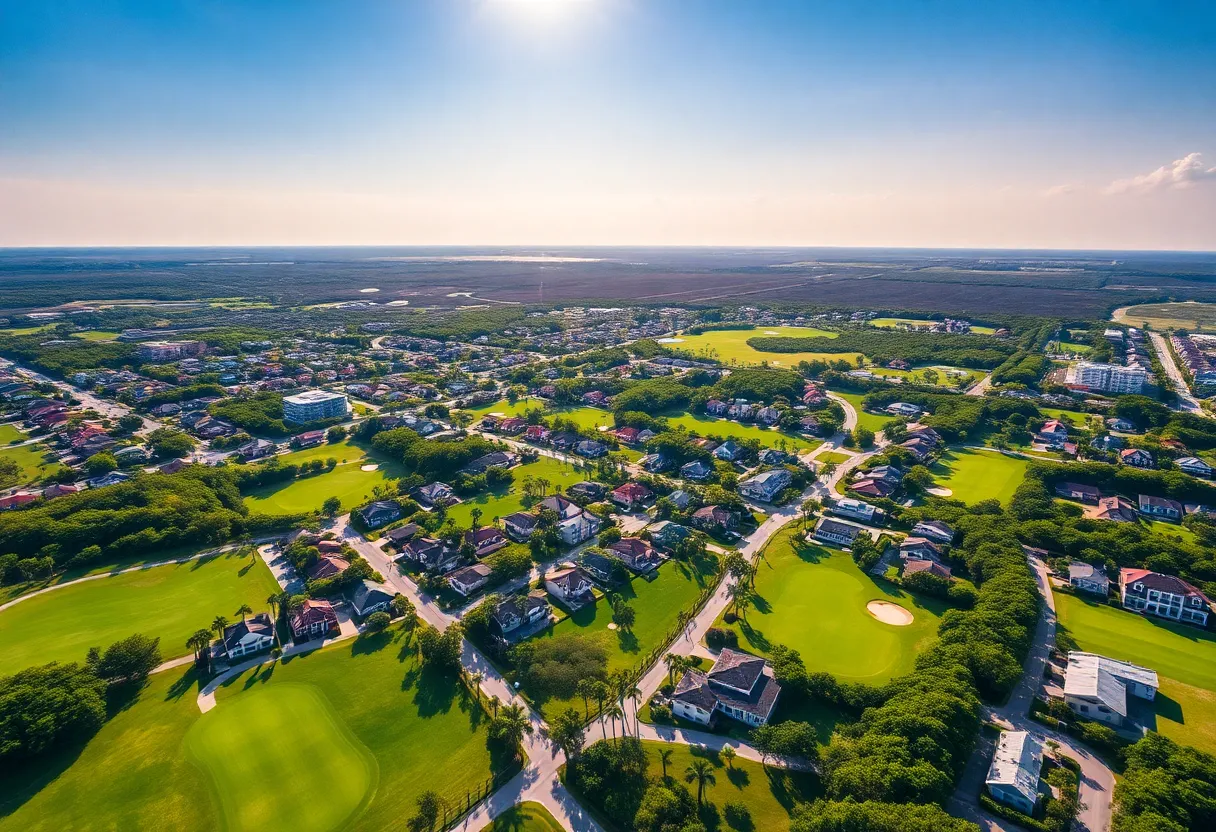News Summary
The Miccosukee Tribe has filed a motion to halt the construction of the ‘Alligator Alcatraz’ detention center in Florida, citing environmental concerns and threats to their traditional way of life. The facility, which can hold 5,000 beds, has raised alarms about its impact on local wildlife and the tribe’s rights to hunt and fish. Amidst the controversy, state officials downplay concerns, but activists and tribal leaders remain steadfast in their opposition.
Miccosukee Tribe Steps into Legal Arena Over ‘Alligator Alcatraz’
The introduction of the migrant detention center known as “Alligator Alcatraz” has stirred quite a conversation in the Everglades. This facility, which officially opened on July 4, 2025, is at the Dade-Collier Training and Transition Airport in Ochopee, Florida. With a whopping capacity of 5,000 beds, it has quickly become the center of attention, particularly due to its controversial ties to immigration practices.
Feeling the Pressure
The Miccosukee Tribe of Indians of Florida has recently filed a motion to join a lawsuit aimed at halting the construction and ongoing operation of this facility. Their concerns are deeply rooted in the potential impact on the local environment and the tribe’s traditional way of life. The motion, submitted to the U.S. District Court, emphasizes fears that the center will hinder their ability to hunt, fish, and carry out ceremonies that hold cultural significance.
Tribal leaders are vocal about their discontent, asserting that the existence of the detention center poses a genuine threat to the health and well-being of the tribe’s members who reside close to the facility.
Environmental Concerns Take Center Stage
This lawsuit isn’t just a solo endeavor; it was initially sparked by environmental groups like Friends of the Everglades and the Center for Biological Diversity. These organizations argue that the construction of the facility violates federal laws that mandate a thorough environmental analysis. They believe this oversight could have severe consequences for the local ecosystem.
The tribe’s attorneys highlighted that the operations could severely affect game and fish populations crucial to the tribe’s livelihood. This raises the crucial question—what happens to local wildlife and the surrounding environment when such large-scale constructions take place in sensitive areas?
The Government’s Response
In a twist that only adds to the controversy, federal agencies, including the Department of Homeland Security (DHS) and U.S. Immigration and Customs Enforcement (ICE), have distanced themselves from accountability surrounding the facility’s construction. On the state level, Governor Ron DeSantis has dismissed the worries raised by environmentalists, suggesting that their arguments are merely tactics to hinder deportation efforts.
Close to Home
What’s more alarming is the close proximity of the detention facility to the Miccosukee Tribe’s ceremonial sites and their villages within the Big Cypress National Preserve. As local residents from the Panther-Osceola Camp report increased traffic and anxiety about their rights to hunt and fish, the implications of the new facility reach far beyond just legal battles.
The Marketing Spin
Florida officials touted the detention center as a high-security hotspot for migrants, including Governor DeSantis’s remarks on the natural defenses provided by the local wildlife, such as alligators and pythons. However, critics argue that this approach is quite the opposite of humane. Archbishop Thomas Wenski from the Archdiocese of Miami has deemed the facility as “unbecoming of public officials,” calling into question the ethical ramifications of such a place.
Spotlight on Conditions and Expenses
Reports have surfaced about the conditions in which inmates are kept, with claims of overcrowding and discomfort, leaving many to wonder about the humanity of the detainees’ treatment. Allegations about detainees being cramped into cages have gained considerable attention, highlighting the moral dilemmas faced by those overseeing such facilities.
All of this comes at a hefty price tag. The facility’s operation costs approximately $450 million for a single year, with initial funding expected to be covered by the Florida state. As the debate around immigration enforcement heats up, the ethics of utilizing isolated, heavily guarded detention sites are under intense scrutiny.
The Bigger Picture
The battle over the Alligator Alcatraz isn’t just some local issue. It’s part of a larger conversation about immigration, environmental protection, and the rights of indigenous people. As the Miccosukee Tribe fights to uphold their traditional practices and protect their homeland, it’s crucial to remember that the outcomes will have lasting impacts not only on their way of life but also on the natural environment that surrounds them.
Deeper Dive: News & Info About This Topic
- Florida Phoenix: Miccosukee Tribe Joins Lawsuit
- NBC News: Miami Archbishop Slams Detention Site
- CNN: What is Alligator Alcatraz?
- AP News: Alligator Alcatraz Immigration Detention
- Wikipedia: Everglades

Author: STAFF HERE ORLANDO WRITER
ORLANDO STAFF WRITER The ORLANDO STAFF WRITER represents the experienced team at HEREOrlando.com, your go-to source for actionable local news and information in Orlando, Orange County, and beyond. Specializing in "news you can use," we cover essential topics like product reviews for personal and business needs, local business directories, politics, real estate trends, neighborhood insights, and state news affecting the area—with deep expertise drawn from years of dedicated reporting and strong community input, including local press releases and business updates. We deliver top reporting on high-value events such as Orlando International Fringe Theatre Festival, Megacon Orlando, and Central Florida Fair. Our coverage extends to key organizations like the Orlando Economic Partnership and Hispanic Chamber of Commerce Metro Orlando, plus leading businesses in leisure and hospitality that power the local economy such as Walt Disney World Resort, AdventHealth, and Universal Orlando. As part of the broader HERE network, including HEREJacksonville.com, HEREPetersburg.com, HERETallahassee.com, and HERETampa.com, we provide comprehensive, credible insights into Florida's dynamic landscape.




